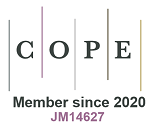A Research on the Effect of Social Media on Tendency to Entrepreneurship and Business Establishment (Case Study: Active Iranian Entrepreneurs in Social Media)
Abstract
Keywords
References
Iskandarani, "The impact of entrepreneurial barrier toward entrepreneurial intention for decreasing unemployment through community empowerment." Procedia-social and behavioral sciences 115 (2014): 166-174.
Kirzner, Israel M. Competition and entrepreneurship. University of Chicago press, (2015).
Shirazi Mofrad, R., Internet marketing in simple language, (solutions for increasing website visit and sales), Tehran, Niyaz-danesh, (2013).
Tiago, Maria Teresa, and Flávio Tiago. "Revisiting the impact of integrated internet marketing on firms’ online performance: European evidences." Procedia Technology 5 (2012): 418-426.
Perju-Mitran, Alexandra, and Andreea Elisabeta Budacia. "Gender differences in modeling the influence of online marketing communication on behavioral intentions." Procedia Economics and Finance 27 (2015): 567-573.
Eid, Riyad, and Hatem El-Gohary. "The impact of E-marketing use on small business enterprises' marketing success." The Service Industries Journal 33, no. 1 (2013): 31-50.
Wilkinson, Ian F., and Louise C. Young. "The past and the future of business marketing theory." Industrial Marketing Management 42, no. 3 (2013): 394-404.
Godey, Bruno, Aikaterini Manthiou, Daniele Pederzoli, Joonas Rokka, Gaetano Aiello, Raffaele Donvito, and Rahul Singh. "Social media marketing efforts of luxury brands: Influence on brand equity and consumer behavior." Journal of business research 69, no. 12 (2016): 5833-5841.
Robbins, Peter, and Frank Devitt. "Collaboration, creativity and entrepreneurship in tourism: a case study of how design thinking created a cultural cluster in Dublin." International Journal of Entrepreneurship and Innovation Management 21.3 (2017): 185-211.
Intrama, Varit, Sammiti Sookbanjung, Kritchana Santawee, and Phattira Teerasawad. "Path of creativity in entrepreneur: Basic concept of creative economy development." In Advances in human factors, business management, training and education, (2017): 263-272.
Okoye, A. C. "Entrepreneurship education: A panacea for graduate unemployment in Nigeria." Online Journal of Arts, Management & Social Sciences 2, no. 1 (2017).
Madleňák, Radovan, Lucia Madleňáková, Libor Švadlenka, and Daniel Salava. "Analysis of website traffic dependence on use of selected internet marketing tools." Procedia Economics and Finance 23 (2015): 123-128.
DOI: 10.28991/esj-2017-01115
Refbacks
- There are currently no refbacks.
Copyright (c) 2017 Masoud Tosifyan, Saeed Tosifyan






